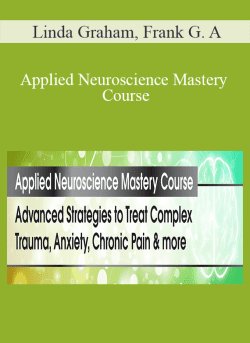Linda Graham, Frank Guastella Anderson, Catherine M. Pittman, Kate Cohen-Posey, Howard Schubiner & David Grand – Applied Neuroscience Mastery Course: Advanced Strategies to Treat Complex Trauma, Anxiety, Chronic Pain & More
Digital Download: You will receive a download link via your order email
Should you have any questions, please contact us:

Original price was: $199.00.$59.00Current price is: $59.00.
Contents
 Linda Graham, Frank Guastella Anderson, Catherine M. Pittman, Kate Cohen-Posey, Howard Schubiner & David Grand – Applied Neuroscience Mastery Course: Advanced Strategies to Treat Complex Trauma, Anxiety, Chronic Pain & More
Linda Graham, Frank Guastella Anderson, Catherine M. Pittman, Kate Cohen-Posey, Howard Schubiner & David Grand – Applied Neuroscience Mastery Course: Advanced Strategies to Treat Complex Trauma, Anxiety, Chronic Pain & More
Neuroscience insight has revolutionized our ability to understand our clients’ symptoms and offers guidance and authority to our treatment strategies.
But it’s also resulted in new challenges that most therapists have no professional training or background to overcome, including:
– How do I translate complex neuroscience insight for my clients when I’m still trying to understand it myself?
– What if neuroscience terminology just confuses my clients more?
– Does this impressive-sounding brain talk actually improve my clinical effectiveness?
That’s why we’re introducing this comprehensive new online training where you’ll join leading treatment experts and become a master at implementing neuroscience insight for various clinical issues, including anxiety, trauma, pain, stress, and more.
Through five comprehensive modules, you’ll learn:
- The most effective methods of integrating modern neuroscience in your therapeutic work
- Brain-based techniques to stop the symptoms of anxiety, panic attacks, rumination, and nausea
- Neuroscience-informed methods for complex trauma
- Step-by-step techniques to address physical and emotional pain
- How to leverage tools from memory reconsolidation and Polyvagal Theory to help clients overcome distress
- and much more!
- You’ll end this training with the confidence you need to apply neuroscience insight to your clients’ specific clinical challenges, so you can offer your clients better, more efficient treatment strategies.
Based on decades of breakthrough research and clinical experience, this training will guide you step-by-step through the essential elements you need to apply neuroscience insight with your client population.
Through clinical demonstrations and practical exercises, you’ll learn exactly how to leverage the power of the brain to enhance your therapeutic approach and increase your effectiveness with even your most challenging client cases.
- Implement lifestyle choices that protect the physical brain as our clients age
- Apply neuroplasticity tools to reverse the impact of stress and trauma
- Engage clients with practical exercises that can enhance brain functioning
- How to regulate emotional sensations by balancing them with uplifting neurochemicals
- How to use visual images to help clients externalize distress and create pathways to inner healing resources
- How to integrate powerful therapeutic approaches into a three-step, brain-based protocol that can be used with diverse populations and ages
- How to help clients understand the impact of anxiety in the brain so clients can more effectively predict and overcome their daily anxiety triggers
- Neurologically informed CBT techniques that help to reduce anxiety
- Effective brain-based strategies to help clients overcome avoidance and resistance
- An effective approach to distinguishing the source of your clients’ pain
- How to help clients understand the neuroscience of their pain and encourage their commitment to positive action
- How to use mindfulness-based cognitive-behavioral techniques to address your clients’ chronic pain
- How to evaluate the extreme symptoms of trauma and their roots
- How to use neuroscience-informed methods to improve clinical outcomes with trauma clients
- The science behind effective approaches that lead to permanent healing of trauma
Meet the Course Experts:

Linda Graham, MFT, is an experienced psychotherapist in the San Francisco Bay Area, bestselling author and international speaker. She integrates modern neuroscience, mindfulness practices, and relational psychology in her worldwide trainings. She is the author of Bouncing Back: Rewiring Your Brain for Maximum Resilience and Well-Being, winner of the 2013 Books for a Better Life award and the 2014 Better Books for a Better World award. She publishes a monthly e-newsletter, Healing and Awakening into Aliveness and Wholeness and weekly Resources for Recovering Resilience.
Speaker Disclosures:
Financial: Linda Graham is in private practice. She is an author for New World Library and receives royalties. Ms. Graham receives a speaking honorarium from PESI, Inc.
Non-financial: Linda Graham is an author of monthly e-newsletters.
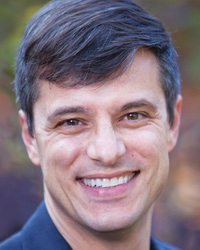
Frank Guastella Anderson, MD, completed his residency and was a clinical instructor in psychiatry at Harvard Medical School. He is both a psychiatrist and psychotherapist. He specializes in the treatment of trauma and dissociation and is passionate about teaching brain-based psychotherapy and integrating current neuroscience knowledge with the IFS model of therapy.
Dr. Anderson is the vice chair and director of the Foundation for Self Leadership. He is a trainer at the Center for Self Leadership with Richard Schwartz, PhD, and maintains a long affiliation with, and trains for, Bessel van der Kolk’s Trauma Center at Justice Resource Center in Boston, MA.
Dr. Anderson has lectured extensively on the Neurobiology of PTSD and Dissociation and wrote the chapter “‘Who’s Taking What’ Connecting Neuroscience, Psychopharmacology and Internal Family Systems for Trauma” in Internal Family Systems Therapy: New Dimensions. (Routledge, 2013). He co-authored a chapter on “What IFS Brings to Trauma Treatment” in Innovations and Elaborations in Internal Family Systems Therapy (Routledge, 2016) and co-authored Internal Family Systems Skills Training Manual (PESI, 2017).
Speaker Disclosures:
Financial: Frank Anderson maintains a private practice. He receives a consulting fee from the Center for Self Leadership. Dr. Anderson receives a speaking honorarium from PESI, Inc.
Non-financial: Frank Anderson is the President of the Foundation for Self Leadership.
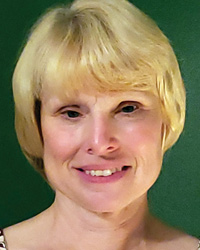
Speaker Disclosures:Financial: Catherine Pittman is an associate professor at Saint Mary’s College. She is an author for New Harbinger and receives royalties. Dr. Pittman receives a speaking honorarium from PESI, Inc.
Non-financial: Catherine Pittman is a member of the Anxiety and Depression Association of America.
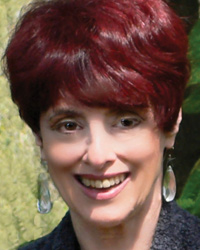
Kate Cohen-Posey, MS, LMHC, LMFT, is the director of Psychiatric & Psychological Services in Lakeland, FL and has 40 years of clinical experience. Her best-selling client handout books offer concise information on common disorders and relationship problems; Making Hostile Words Harmless teaches how to disarm attack-defend-withdraw neural pathways and is endorsed by Stephen R. Lankton, protégé of Milton Erickson; Empowering Dialogues Within gives more than 50 examples of brain change strategies by wiring negative brain centers with their counter parts in the positive frontal lobe through dialogue. She is the inventor of the Handy Brain Model – a teaching tool that makes complex neurological information understandable. Kate has a knack for integrating wisdom from CBT, Ericksonian hypnosis, Gestalt, Ego State, EMDR, Somatic, and Brain-spotting therapies with knowledge emerging from neuroscience and brain imaging studies. She has also studied with the Hokori-Ji Zen Center and has been practicing yoga for many years.
Speaker Disclosures:
Financial: Kate Cohen-Posey receives compensation as Director of Psychiatric and Psychological Services. She receives royalties as an author from John Wiley & Sons, Inc., and Rainbow Books, Inc. Ms. Cohen-Posey has an ownership interest with Handy Brain Model. Kate Cohen-Posey receives a speaking honorarium from PESI, Inc.
Nonfinancial: Kate Cohen-Posey is a member of the Eye Movement Desensitization & Reprocessing International Association (EMDRIA); and the American Association of Marriage and Family Therapists (AAMFT).
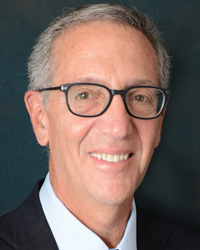
Speaker Disclosures:Financial: Howard Schubiner is an attending physician at Children’s Hospital of Michigan; harper Hospital; Hutzel Hospital; and Detroit Receiving Hospital. He is a faculty member at Providence Hospital. He is an author for Mind Body Publishing and receives royalties. Dr. Schubiner receives a speaking honorarium from PESI, Inc.
Non-financial: Howard Schubiner is a fellow in the American College of Physicians; the American Academy of Pediatrics; and the Society for Adolescent Medicine.
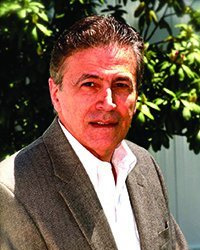
David Grand, PhD, is the founder and developer of the groundbreaking brain-body based Brainspotting method. Through his Brainspotting Trainings, Inc., he has trained over 8,000 therapists internationally. Dr. Grand is the author of the acclaimed book, Brainspotting: The Revolutionary New Therapy for Rapid and Effective Change and the co-author of This is Your Brain on Sports. Dr. Grand is in demand as a lecturer on a variety of topics. He has accomplished breakthroughs in performance and creativity with his Brainspotting sports work and Brainspotting acting and singing coaching.
Sale Page: https://catalog.pesi.com/sales/bh_c_001319_appliedneurosciencemastery_organic-77270
Archive: https://archive.fo/QvGuX

